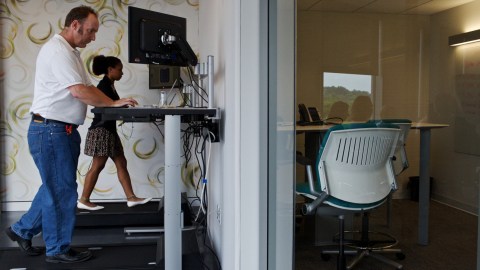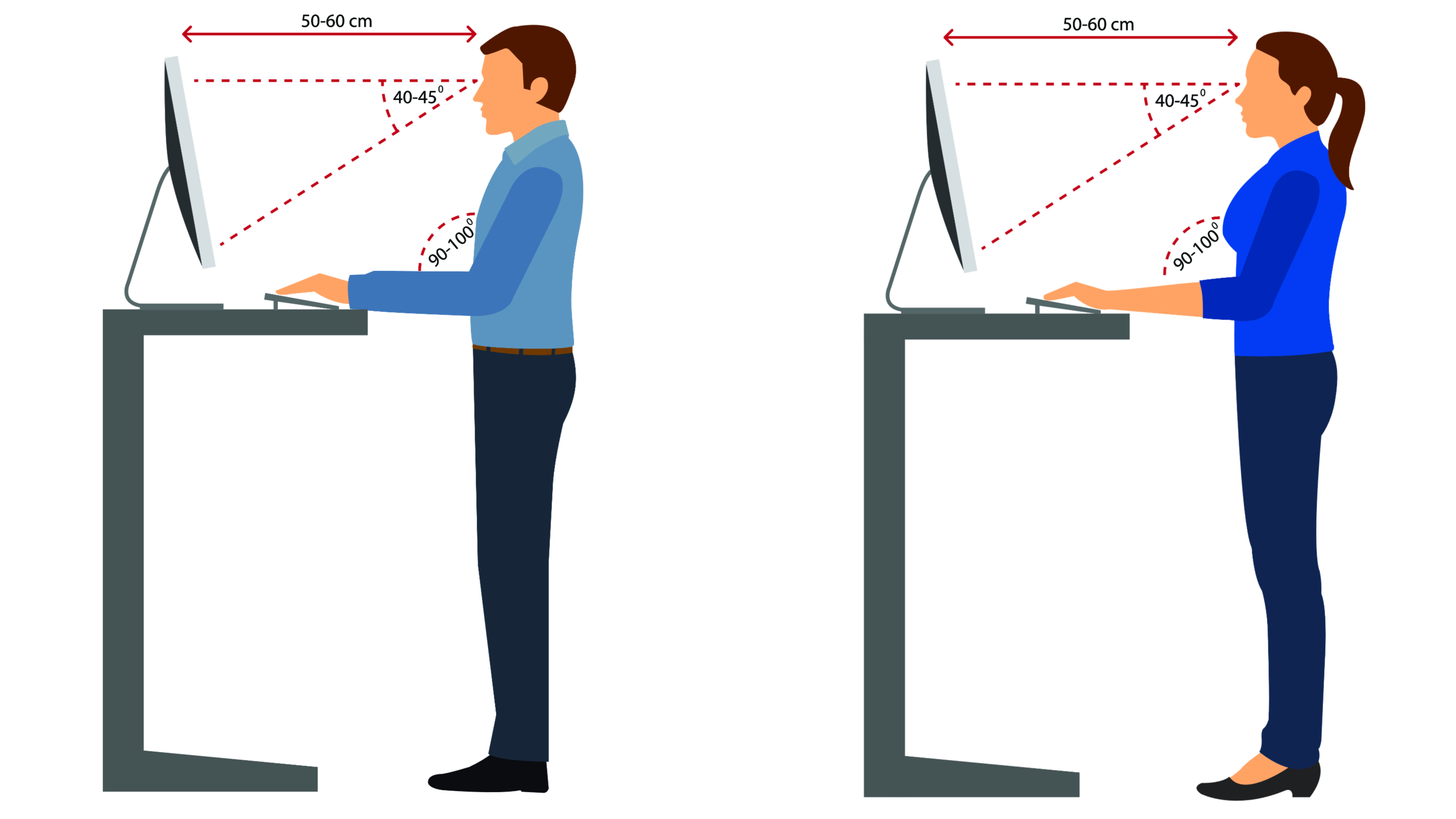Treadmill Desks Aren’t the Solution, Says Researcher

Treadmill desks have shown their worth. They aren’t the end-all-be-all exercise solution, but they’ve shown to help boost productivity and memory, as well as offset some of the harmful effects from sitting all day long. So, then why haven’t they taken off? Researchers are discovering that the treadmill desk just isn’t a sustainable solution.
Lucas Carr, an assistant professor of health and human physiology at the University of Iowa, said in a press release:
“It’s a great idea in theory, but it doesn’t work over the long haul for most people.”
So, he’s come up with an alternative: a portable pedaling device that can be stowed under an employee’s desk. Carr said: “This is something that could be provided to just about any employee, regardless of the size of their company or office. It’s right at their feet, and they can use it whenever they want without feeling self-conscious in front of their co-workers.”
Carr tested the idea in a pilot study, which appeared in the American Journal of Preventive Medicine. The 16-week experiment tested out the prototype in a real-world scenario, giving 27 employees at ACT Inc. the pedaling machine to use at their office. The average time using the device was 50 minutes a day over the course of 16 weeks. Participants were also engaged through emails sent to them thrice daily, prompting them with tips and reminders to move about during the workday.
Carr found that over the 16 weeks, workers who made the effort to pedal more enjoyed several health benefits, including weight loss, improved concentration, and fewer sick days compared to co-workers who pedaled less, which is to be expected. However, more work will have to be done to see how big of a change a device like this could have for desk workers in the short term and later on in life.
Read more at Science Daily.
Photo Credit: The Washington Post / Getty





